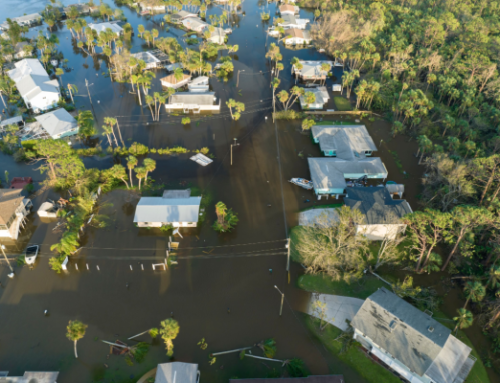If there is one thing I have learned over the last couple of years it is that there is mass confusion among the public- older Americans and adult children alike- when it comes to the different types of retirement communities and care facilities. Ask ten people to describe the difference between “active adult living” versus “independent living” versus “senior apartments” versus “assisted living” versus “continuing care retirement communities” and see if even one can give a satisfactory answer. Most will throw up their hands and not even try to give you an answer.
The perception among the public of a “retirement community” in general is all over the map. To some the term immediately triggers thoughts of an “old-folks home” or the dreaded “nursing home.” Yet if I simply add the words “high end” to the beginning they will likely have a completely different view; something similar to a country club or cruise ship atmosphere. (You’ve seen the pictures right…the happy older couple at a party wearing goofy hats and blowing kazoos.) Neither image is necessarily optimal from the standpoint of the senior living industry on the whole- or more specifically the CCRC industry. The first image causes people to avoid a retirement community at all costs. The second one is almost intimidating; some may feel that they are not social enough, active enough, or wealthy enough to move to a retirement community.
According to a recent retirement study released by Merrill Lynch in partnership with AgeWave approximately 60% of retirees are concerned about being a burden to their adult children. The study does not provide any insight into the reasons behind responses but I would anticipate that many people cited this as a concern due to a difficult caretaker situation they encountered with their own loved ones. Another 26% of retirees cited loneliness as a retirement concern.
In the next three to four years the oldest baby boomers will begin turning age seventy. This is the beginning of what I often refer to as the “mid-retirement” phase. At that age most are still independent and able to make decisions about their future. Other important planning decisions such as social security options, medicare and med-supp plans, pension payout choices, and 401k rollovers have likely already been addressed at this age. At this point we believe many will start to ask the question, “Where will we go from here? Where will we live as we approach our later phases of retirement? How can we most enjoy the remainder of lives without being a burden to our adult children? How can we avoid loneliness in older age?”
These were not pressing questions for previous generations. Fewer families experienced the difficult situation of having to care for an older loved one over long periods of time like many do today because, quite frankly, people died much earlier and required less care. But the landscape is shifting. Advances in technology and healthcare are allowing people to live longer lives, but seldom without some degree of care and often for an extended period of time. Through experiences with their own parents older Americans today are beginning to realize the importance of planning. They are seeing that aging at home, while still preferred by the majority of families, is often easier in theory than in practice.
At LifeSite Logics we believe all of this spells opportunity for continuing care retirement communities. And we believe that capitalizing on this opportunity starts with education, not purely selling in a vacuum. We believe a better-informed consumer is beneficial to the entire retirement living industry. It’s only natural for people to delay addressing issues by which they are confused. Instead they simply put it off until an issue is urgent and then reactively seek a solution under duress. By helping the public better understand the available retirement living choices, including CCRCs and other choices, we believe they will be more comfortable having a conversation about the best path for themselves and their families, thereby opening up more opportunities for CCRCs to tell their story.

FREE Detailed Profile Reports on CCRCs/Life Plan Communities
Search Communities





